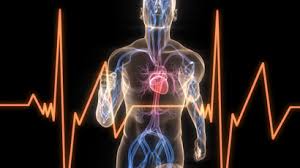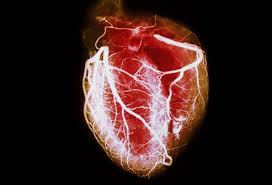 Running marathons or completing other ultra-endurance events is not necessarily bad for the heart, although it could be. But first, a clarification: By standard definitions of exercise intensity, running or jogging is moderate or even vigorous exercise. During such exertion, the heart works hard to supply blood to working muscles and over time becomes stronger and somewhat larger.
Running marathons or completing other ultra-endurance events is not necessarily bad for the heart, although it could be. But first, a clarification: By standard definitions of exercise intensity, running or jogging is moderate or even vigorous exercise. During such exertion, the heart works hard to supply blood to working muscles and over time becomes stronger and somewhat larger.
Research has been unclear on whether these changes can become harmful. Multiple studies have shown that immediately after running a marathon, most racers show increased levels of a protein associated with cardiac damage. But those levels soon return to normal, with no lingering damage.
Years of prolonged and repeated endurance training and racing, however, might have more pronounced, lasting and  worrisome effects. A 2011 study of aging former Olympic runners and rowers from Britain, for instance, found that compared with healthy but unathletic men of the same age, the retired Olympians were disproportionately more likely to have scarring within their heart muscles. Similarly, in a 2013 study, people who had competed multiple times in a grueling, 56-mile cross-country ski race in Sweden had a much-higher-than-normal risk of developing heart arrhythmia within five years.
worrisome effects. A 2011 study of aging former Olympic runners and rowers from Britain, for instance, found that compared with healthy but unathletic men of the same age, the retired Olympians were disproportionately more likely to have scarring within their heart muscles. Similarly, in a 2013 study, people who had competed multiple times in a grueling, 56-mile cross-country ski race in Sweden had a much-higher-than-normal risk of developing heart arrhythmia within five years.
But these studies, although disquieting, “do not mean that it has suddenly become dangerous to exercise,” said Kasper Andersen, a professor at Uppsala University in Sweden who led the study of skiers. In fact, an earlier study from his lab found that, over all,  participants in the ski race had a below-average risk of premature death.
participants in the ski race had a below-average risk of premature death.
Even the Olympians with heart scarring seemed largely unaffected. They were running and competing well into their 60s and 70s, that study found. Conceivably, the researchers wrote, the Olympians’ cardiac changes, which would be undesirable in most people, were normal in lifelong endurance athletes.
At this point, scientists just do not know precisely how years of endurance training might affect the heart.
So the best advice for those who enjoy endurance training is “carry on as usual,” Dr. Andersen said. “But remember to listen to your body and seek a doctor if you experience any symptoms from the heart.”
Source: New York Times
The Presidential Healthcare Center uses cardiac imaging to screen for “Athletic Heart Syndrome”
